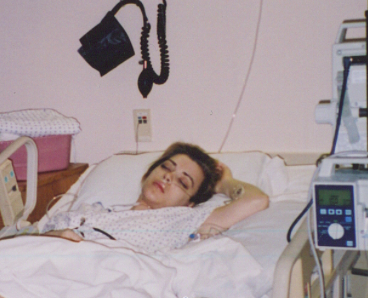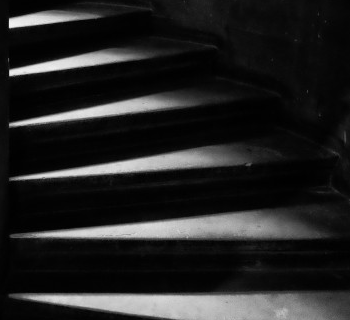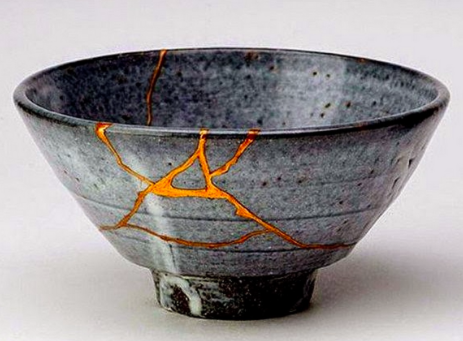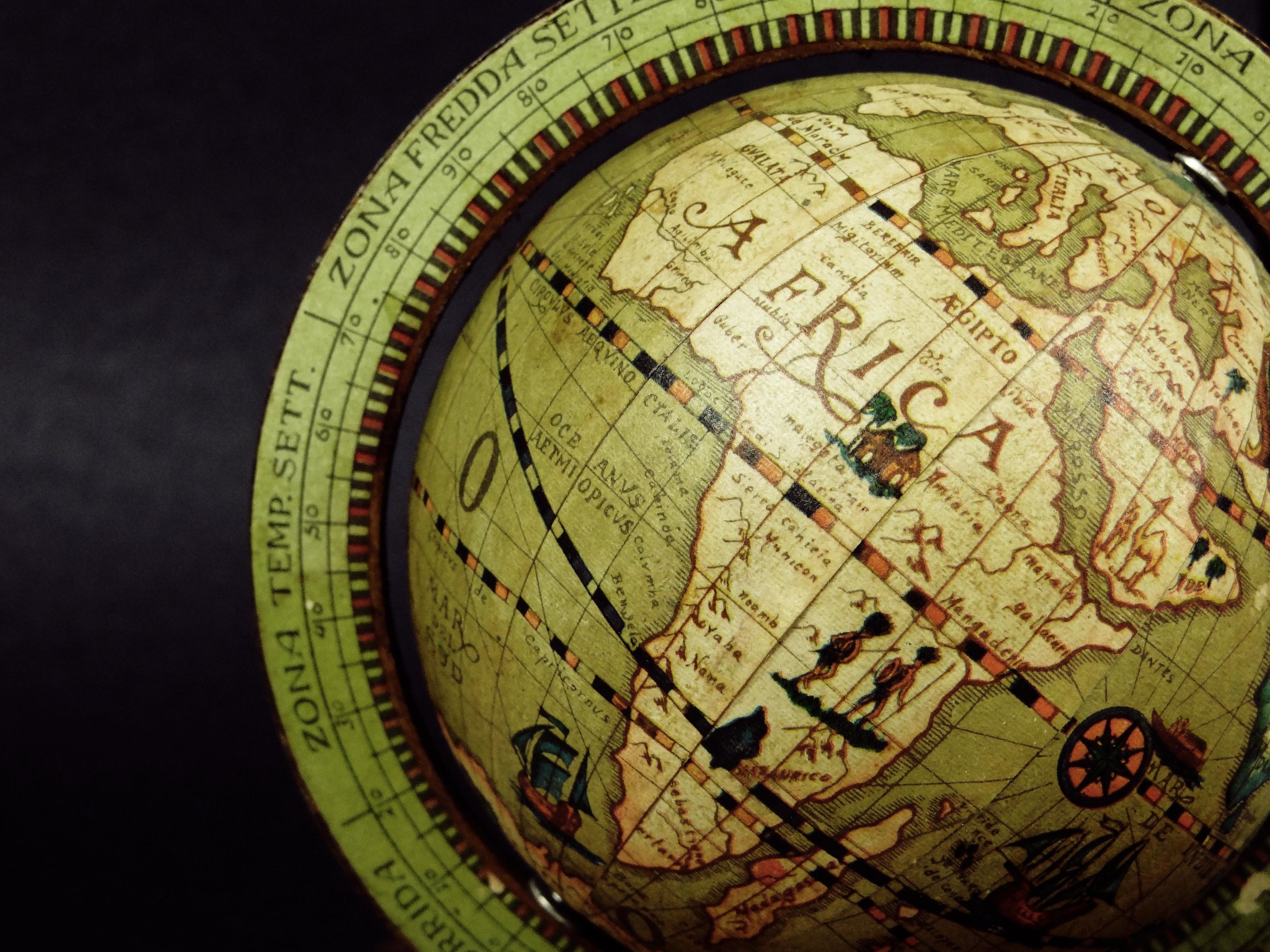so you want to change the world: it starts with you
Looking back on my interview at Yale's PA program, I try to remember what I meant when I told them I was going to change the world some day. In my mind, "changing the world" mean that I was single-handedly going to fix broken systems and places around the globe and that, because of my efforts, the entire world would be a radically different place.
I didn't even know exactly what I was going to do for the world. I just felt energized and optimistic and, though Baptists don't use this language, divinely anointed and appointed to do something special and major in the world.
And then, a year after I finished PA school, I was diagnosed with breast cancer.
"Okay," I thought. "This could be my big break. A book about my cancer experience."
I imagined writing a literary masterpiece, with an insert of glossy photos that chronicled my journey.
I asked my mom to take pictures. Even when, after the mastectomy, I was in horrible pain. Even when, a week later when I was discharged from the hospital, I looked like a heroin addict coming down from a bad high -- thin, pale, with bruises on my arms and dark circles under my eyes.

I thought I was going to write about being tough and resilient and unscathed by having breast cancer at 27. There is so much competitive language used about cancer. You battle it. You beat it. You fight it. And I was sure that after competing with cancer, I'd come out on top, with a book deal in addition to epic bragging rights.
But that's not what happened at all.
After I got out of the hospital, I went into the deepest, darkest depression I have ever experienced in my life. I remember driving to the ocean, staring at the waves, and crying for hours. I remember that, on the days I didn't have to be at work, I would lay in bed for the day, staring at the ceiling, because I couldn't think of a reason to get up.
The girl who was going to change the world some day was now the girl who couldn't get out of bed.
I was supposed to have reconstructive surgery three months after my mastectomy, but I was so traumatized by the initial surgery, and in such bad emotional shape, I put it off for a year. And then, during that surgery, they found that my cancer had recurred. This time, it was the most invasive, aggressive type of breast cancer you could get.
After that, I went through chemo, four more surgeries, radiation, followed by more chemo. And then I almost died of pneumonia.
Henry Wadsworth Longfellow said, "The best thing one can do when it is raining is to let it rain."
So, for six months after I got out of the hospital, I just let it rain. I let it be hard. I stopped fighting the darkness. I stopped resisting my negative emotions and all the anger I had at God for letting this happen to me. I allowed myself to acknowledge that I was a very broken person who needed a lot of grace and a lot of love.

To put it simply, I was deeply humbled by the experience. I didn't nail the cancer journey. For a long time, I didn't want to write or talk about it. I resented and resisted being a "cancer patient."
In addition to becoming humble, I became empathetic. Suddenly, I understood what it was like to live under the dark cloud of depression. I understood what it was like to be an unsavory version of myself, incapable of doing any better. I understood what it was to stand in need of my family's love, acceptance, grace and encouragement, even though I was unable to give them anything but tears and anger in return.
My body and my spirit were shattered by the experience.
On my days off, every morning I made coffee and sat on my couch in the living room, reading the Bible and journaling for hours. And every morning I ended up face-down on the living room floor, praying, weeping -- sometimes yelling -- into the carpet.
It took a long time and a lot of tears, but I finally came to the place where I surrendered. "I give up," I said to God. "I don't understand it. I don't like it. My dreams are shattered. But here are the pieces -- do whatever you want."
And then. Slowly, almost imperceptibly, things began to shift. I began to look forward to the future instead of dreading it. I began to imagine what God could possibly do with the broken pieces I had surrendered. I began to laugh at how emotionally messy I was instead of crying about it.
The Japanese have an art form that mirrors this phenomenon. It's called Kintsugi. Artists purposefully shatter ceramic vessels and repair them with expensive lacquer flecked with platinum or silver or gold. Vessels that have been shattered and glued back together with expensive glue are far more valuable than vessels that are unbroken.

Paul said, "We have this treasure in jars of clay to show that this all-surpassing power is from God and not from us." For the first time in my life, I understood that verse -- not with my head, but with my heart.
And then Jesus referred to himself as the Living Water.
I began to see those verses as overlapping truths. I was like a broken jar of clay. But the Divine Love that had carried me through the horrific journey was a well of Living Water that sprang up in me, and it began to spill out of me. Not in spite of, but because of, all the cracks.
I became a much more compassionate medical provider. I noticed the desperate look in a Somali refugee woman's eyes on the MAX train in Portland because that's the look I'd had in my eyes, too, when I first moved to Portland with nothing but a suitcase of clothes and a broken heart.
I learned that when I said, "I want to change the world some day," it had to start with me being humbled, broken and honest. It began with me changing my posture towards the world.
I wasn't looking down on desperate people who needed help; I was one of them.
I didn't have pity for people who were suffering; I had compassion towards them -- a word that literally means "to suffer with."
In the conversations I've had with hundreds of college students over the past year who tell me they want to change the world, I say, "That's great! Just know that first -- it starts with you."
You have to be humble, and realize that you're just as broken as anyone. That you're not deigning to offer your services to people in need; you are as needy as anyone. Maybe you don't need clean water or food, but you do (at least sometimes) need extra grace and love and mercy and second chances.
You need to be honest about the places in which you are broken, and surrender to the Potter who uses the expensive lacquer of Divine Love to piece you back together.
You need to acknowledge that the source of joy and compassion welling up in you is "from God and not from us" -- in the words of Jesus, it's this spring of Living Water that will sustain you and supply you with water to sprinkle on the parched world around you.

So you want to change the world?
Remember that it starts with God changing you.
Acknowledge your brokenness. Let God clean you from the inside out, and piece you back together with Love. Surrender to the Living Water that wants to spring up inside you.
Then stand back.
And see what happens next.
